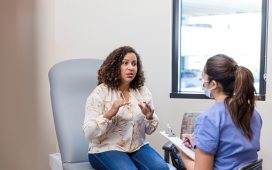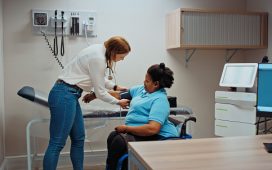Doctors play a vital role in public health. They are not only responsible for treating patients, but they also play a role in advocating for public health policies, educating the public about health risks, and preventing disease.
Advocacy
Doctors can use their voice and influence to advocate for public health policies that improve the health of their patients and communities. They can speak out about the importance of funding for public health programs, such as vaccination programs and smoking cessation programs. They can also work to educate policymakers about the impact of public health policies on the health of their constituents.
Education
Doctors can also play a role in educating the public about health risks and how to prevent disease. They can give presentations to community groups, write articles for newspapers and magazines, and create educational materials about health risks and prevention strategies. Doctors can also use their social media platforms to share health information with their patients and followers.
Disease Prevention
Doctors can play a role in preventing disease by providing preventive care to their patients. This includes screening for diseases, such as cancer and diabetes, and providing vaccinations. Doctors can also counsel patients about healthy lifestyle choices, such as eating a healthy diet, exercising regularly, and not smoking.
Doctors are uniquely positioned to play a role in public health. They have the knowledge, skills, and influence to make a real difference in the health of their patients and communities. By advocating for public health policies, educating the public about health risks, and preventing disease, doctors can help to create a healthier world for everyone.
Here are some specific examples of how doctors can play a role in public health:
- Advocating for policies that promote healthy eating and physical activity: Doctors can speak out about the importance of healthy eating and physical activity for preventing chronic diseases, such as heart disease, stroke, and type 2 diabetes. They can also advocate for policies that make it easier for people to eat healthy and get exercise, such as zoning laws that support the development of grocery stores and parks in walkable neighborhoods.
- Educating the public about the dangers of smoking: Doctors can educate their patients about the dangers of smoking and help them to quit. They can also speak out about the need for policies that reduce tobacco use, such as bans on smoking in public places and higher taxes on cigarettes.
- Screening patients for cancer and other diseases: Doctors can screen patients for cancer and other diseases, such as cervical cancer, breast cancer, and colorectal cancer. Early detection and treatment of these diseases can save lives.
- Vaccinating patients: Doctors can vaccinate patients against preventable diseases, such as measles, mumps, and rubella. Vaccination is one of the most effective ways to prevent disease.
- Counseling patients about healthy lifestyle choices: Doctors can counsel patients about healthy lifestyle choices, such as eating a healthy diet, exercising regularly, and not smoking. These choices can help to prevent chronic diseases and improve overall health.
Doctors are essential partners in public health. By working together, we can create a healthier world for everyone.








